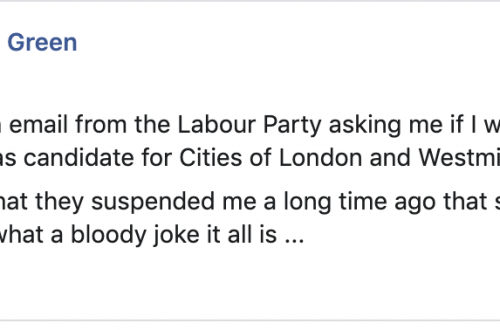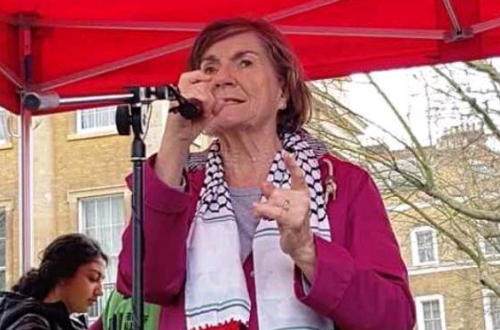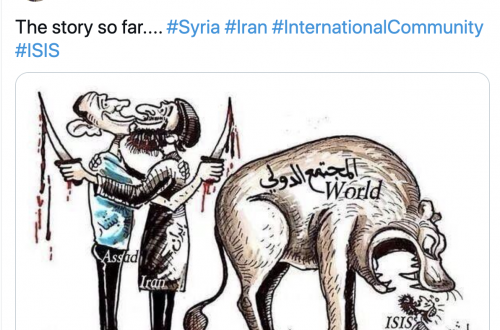This is a guest post from LibertyPhile
Three quarters of Australian Muslims think counter-terrorism policing and laws unfairly target their community according to a new study funded by the Australian Research Council. Muslims in Australia feel under siege. This has generated a community backlash.
The authors conclude the police should treat Muslims with respect, impartially, in a trustworthy manner, and give them an opportunity to have a say in counter-terrorism policing. This way Muslims are more likely to trust the police, less likely to feel under siege, and more willing to co-operate.
There is more to the study than this. A lot more.
The study is based on 14 focus groups, totalling 104 participants, and a survey of 800 face-to-face interviews with Australian Muslims.
A Great Fallacy and a Sense of Being Under Siege
The focus groups provide examples of what Australian Muslims typically have to say, verbatim comment, about their views and feelings. It gets off to a good start.
The very first verbatim comment in the opening section is:
“…. we need to separate Islam and separate it from people because these Al Qaeda and whoever else, they’re the ones who are saying they’re Muslims and doing these acts, but a true Muslim wouldn’t do that ….”
A sense of Muslims being under siege and attack was expressed in a variety of ways.
“Why is the world against us, why are we seen to be the bad people?…God does not accept people blowing themselves up in the name of God. …. The whole notion is to destroy Islam and its followers. The whole world is against us.” (female).
For some participants it reflected a long history of persecution against Islam and was interpreted as part of a broader effort by governments to suppress Muslims.
Attitudes Towards Terrorism and the War on Terror
The study aimed to understand how the Muslim community felt about terrorist groups and events such as 9/11, 7/7, the Bali Bombings and other major terrorist events.
In the opinion of participants the act of terrorism could not be divorced from broader events that fuelled resentment and frustration among Muslim populations. These events included:
[1] The Israel and Palestine conflict and the death of Palestinians due to what respondents regarded as Israeli aggression and unwillingness on the part of the international community to sanction Israel.
[2] The death of Muslims in wars such as Iraq and Afghanistan, and
[3] The lack of public and political outcry shown towards Muslim victims of overseas conflicts and government oppression compared to other groups.
The quote below from a young female Muslim, sums up these sentiments expressed across the focus groups and the level of frustration they evoked:
“…..a lot of it is political and it’s – you have to – you can’t just go from one thing and say, that’s why it’s started. So you can’t just start from September 11 and say, oh, September 11 happened and that’s when it started. Yeah, we have to really look back into history and look at the history of occupation and invasion throughout the Middle East, which resulted in September 11.”
“…. it’s really interesting how since September 11 happened till now, every year it’s always – people remember it …. and say that we lost so many people. But people – the invasion of Iraq does not – there is no such thing about, oh, maybe we did kill millions of people, not 1000, millions … no one talks about that. Maybe we should commemorate that loss and that invasion day. Nope, you never hear that.”
All this displays a shocking ignorance and a strikingly one sided view of history. The present writer in a few words here is not going to throw new light on the Israel and Palestine conflict, but it’s worth a few remarks on the big picture to counter a belief in a “history of occupation and invasion throughout the Middle East”, and the deaths of “millions” of Muslims caused by or at the hands of outsiders.
The Islamic world including the Middle East has governed itself since the mid-sixties, and the invasions, occupations, and Muslim deaths since then have been overwhelmingly the work of Muslims themselves. Here are a few examples: Pakistan and Bangladesh (1,250,000 deaths); the Iran-Iraq war (1,000,000); Saddam against minorities (300,0000); Kurds in Iraq, Iran, Turkey (300,000); Islamists and Algerian government (200,000); Invasion of Kuwait (140,000); the Lebanese civil war (150,000).
There is a range of estimates regarding the Iraq war since 2003 and the ensuing insurgencies and civil conflicts. Respectable sources do not run into “millions”. The greatest number of deaths is the result of Muslims fighting amongst themselves for tribal or religious reasons.
“Ignorance of History Fuels Australian Muslim Backlash Against Counter-Terrorism Laws” would be a reasonable headline for a report on this study.
Knowledge of earlier history is relevant. What do Australian Muslims know of the centuries of failure of Islamic government to make political, economic or social progress that culminated in the Caliphate’s declaration of war on Britain and her allies in 1914? The foundations and divisions of the Middle East we know today were laid during those centuries of backwardness.
Do they know who abolished the Caliphate, the act that so exercised bin Laden? And, what do Australian Muslims make of Anzac day?
The above is worrying but there is worse.
For a minority of participants the “war on terror” arises from “manufactured events” being used by governments and powerful interests to discredit Islam and further justify the singling out of Muslim communities. These sentiments were particularly pronounced among young participants.
The comment below reflects this theme and its relationship to the ongoing perception that rose throughout the focus groups that Islam was under attack:
“But first, can we confirm that these people committed these crimes. How do you know that some Zionist movement or American people haven’t paid their people to commit these crimes [in reference the September 11 attacks] in the name of Islam to show how bad we are?”
Truly, a shocking result.
And as if to rub it in the March 23 edition “The Age”, an Australian newspaper, carries the news that the principal of Victoria’s largest Islamic school told students not to join Islamic State because it is a plot by Western countries. He told the newspaper he believed IS was a scheme by Israel and America to control oil in the Middle East. Unbelievable, except it backs up the findings of this study.
How the Numbers Add Up
21% think terrorists sometimes have valid grievances, but more interesting is the 26% who think “the concept of Jihad in Islam supports use of violence as a means to an end” and the 25% who say Jihad is more than a “personal struggle for righteousness”.
This suggests a quarter or so of Muslim Australians believe the use of violence is justified in furthering the aims of Islam. So much for the “no true Muslim” idea.
Over a third (36%) of Muslim Australians believe the “war on terror” is a “war on Islam”. It seems however polite the police are it will not earn the support of these Muslims for Australia’s counter-terrorism laws and procedures
English is not the main language spoken at home for well over a half (57%) of Australian Muslims. This is a stark indicator of the troubling gap between many of Australia’s Muslims and the rest of the Australian people.
It suggests other questions that should be explored. If they speak Arabic at home do they get their news from Arabic sources? Do they take in the poisonous propaganda that pours out of the Middle East especially in regard to the Israel and Palestine conflict.
Conclusion
As this report concludes, polite and civilised policing can do a lot to encourage Muslim citizens to support Australia’s counter-terrorism laws and measures. It might be added this is true for all citizens who probably believe polite and civilised policing should be the norm for everyone.
It does not address the bigger barrier to support and co-operation for counter-terrorism laws and measures. A substantial proportion of Australian Muslims out of ignorance of history, cultural baggage, and their religious beliefs, in their hearts or in their heads, don’t agree with them.
==
This is a short version of an article at “Islam Surveyed” which contains much more information and links to sources.


